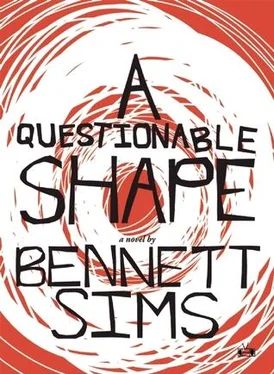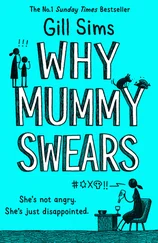Bennett Sims
A Questionable Shape
I hastily left the narrow street at the next turning. However, after wandering about for some time without asking the way, I suddenly found myself back in the same street, where my presence began to attract attention. Once more I hurried away, only to return there again by a different route. I was now seized by a feeling that I can only describe as uncanny. Other situations share this feature of the unintentional return. One comes back again and again to the same spot. To many people the acme of the uncanny is represented by death, dead bodies, revenants… The return of the dead.
Sigmund Freud, ‘The Uncanny’
Human love is implicated with death, because it implies either resurrecting the beloved or following the spouse into the death realm. It is fitting that the lost one is a synonym for the dead one, since the dead are lost de jure and one loses them de facto in the labyrinth. Marriage requires the spouse to follow his wife into the labyrinthine realm of death… To follow them into undeath, as Orpheus did. Orpheus is the model spouse.
Jalal Toufic, Undying Love, or Love Dies
WHAT WE KNOW ABOUT THE UNDEAD SO FAR IS this: they return to the familiar. They’ll wander to nostalgically charged sites from their former lives, and you can somewhat reliably find an undead in the same places you might have found it beforehand. Its house, its office, the bikelanes circling the lake, the bar. ‘Haunts.’ The undead will return to the neighborhood grocery store and shuffle down its aisles, as if shopping. They will climb into their own cars and sit dumbly at the wheel, staring out the windshield into nothing. A man bitten, infected, and reanimated fifty miles from home will find his way back, staggering over diverse terrain — which, probably, he wouldn’t have recognized or been able to navigate in his mortal life — in order to stand vacantly on a familiar lawn. No one knows how they do it — whether by tracking or instinct or some latent mnemocartography — nor why, but it’s an observable phenomenon. In fact, what it calls to mind are those homing pigeons, the ones famous and fascinating for the particles of magnetite in their skulls: bits of mineral sensitive to electromagnetic pulls and capable of directing the pigeons, like the needle of a compass, homeward over vast and alien distances. It is as if the undead are capable of ‘homing’ in this way. 1
At seven this morning, an hour before Mazoch usually arrives, I sit down with a sheet of loose leaf to write out some of the sites where we’ll be searching for his father today. The list is for Rachel, who’s still asleep. I’ll leave it on the coffee table by our copy of FIGHT THE BITE , the infection-awareness pamphlet that the Louisiana Center for Disease Control doled out back in May, at the beginning of the outbreak (chapter titles include ‘1. A Bite’s Never Alright [sic],’ ‘5. A Knock To The Head Will Stop ’Em Dead,’ et cetera). Recently Rachel has been requesting a list of those places ‘you two go every day,’ so that, if I’m worryingly late coming home, she’ll at least be able to tell the police where to start looking. She’s right, of course. At the heading of the sheet, first item on our itinerary, I write down Mr. Mazoch’s old address.
He went missing from his house in Denham Springs several weeks ago, and Matt emailed me shortly afterward to enlist my help. We gave ourselves the month of July, just before hurricane season hits, setting this Friday as our deadline. Assuming that Mr. Mazoch hasn’t been detained, quarantined, or put down already, he might still be wandering, compelled, toward his remembered places. We figured it was only a matter of determining what places these would be, staking them out each day, and waiting for our routes to overlap. If our trip to his house in Denham coincides with Mr. Mazoch’s, then he and Matt will be reunited. To inspire us each morning, Matt copied out two Thomas Hardy quotations on separate post-it notes and taped them to the dashboard of his car: ‘My spirit will not haunt the mound/ Above my grave,/But travel, memory-possessed,/To where my tremulous being found/Life largest, best./My phantom-footed shape 2will go/When nightfall grays/Hither and thither along the ways/I and another used to know’ from ‘My Spirit Will Not Haunt the Mound,’ and, ‘Yes: I have entered your old haunts at last;/Through the years, through the dead scenes I have tracked you;/What have you now to say of our past—/Scanned across the dark space wherein I have lacked you?’ from ‘After a Journey.’ Each poem seems to speak to the other across the inch of dashboard leather that divides them, just as I imagine Mr. Mazoch letting out an unearthly moan, and Matt humming out the open window to keep awake as he drives, and that moaning and that humming speaking to one another across Baton Rouge’s fields and highways, across all the remembered and misremembered suburbs that separate Mazoch from his father.
I place the list on the coffee table and check my cell phone for the time. 7:15. Matt is no doubt doing his morning pushups right about now. He completes sets of a hundred before setting out each day, and always manages to arrive at eight sharp, giving his familiar, hearty knock at the door. With equal regularity he manages to drop me off by four, and — if Rachel and I don’t invite him over for dinner — goes home to read his ‘book a night.’ He’s been this way since undergrad: a mesomorphic litterateur, who keeps his square jaw clean-shaven and his blond hair buzzed close, like a wrestler, and who’s succeeded, too, in cultivating a wrestler’s physique (the perfect inverse pyramid of his back; the chest like a breastplate; the forearms thick as my calves), even though he’s never grappled with anything bigger than an OED. Back when he was LSU’s model English major, the bodybuilding always struck me — a stereotypically scrawny philosophy student — as a waste of his time: something that he would grow out of eventually, or else replace with a new routine. But not even the outbreak has altered his regimen. In the living room of his apartment a used bench press abuts a floor-to-ceiling bookcase, brimming with paperbacks, while in the doorway of his bedroom a pull-up bar is installed, with a fifty-pound weight belt coiled beneath it. It is this same self-discipline and rigor that Matt has been bringing to bear on the search for his father.
In his initial emails to me, he compiled a brief assortment of some of Mr. Mazoch’s likely haunts. Since starting the search, we’ve made surprisingly few additions to that list. There’s the house in Denham, which is my first item for Rachel, plus a number of other places that Mr. Mazoch would have frequented: the Freedom Fuel gas station; Louie’s Café; the grocery store, auction house, and antiques mall; the plumbing warehouse where he reported every morning for forty years (even into his sixties, when finally a debilitating heart attack forced him to retire). I write all of these down, in a column beneath the house’s entry. Then I add some of the fast-food restaurants — McDonald’s, Taco Bell, Jack-in-the-Box — where Mr. Mazoch took his lunch breaks every day (causing him to accumulate weight ruinously in later life, ending it, according to Matt, near three hundred pounds). The Goodwill, the Salvation Army, where he bought the used boots and ripped jeans he worked in. These businesses are all boarded up by now, but they’re still places where his father might be. Places where Matt’s sensitivity and agitation reach a kind of peak, where he holds his breath at the appearance in the distance of every undead silhouette, trying to determine by the height and breadth of its fatherly shape whether it’s worth lifting the binoculars for. 3
Читать дальше












